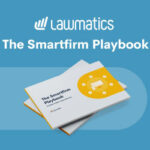
Lawyers Should Act Like Emails Between Counsel Will Be Made Public
//
 Lawyers usually communicate with counsel and other stakeholders in legal matters through email rather than communicating matters over the phone due to the convenience of typing out a message. Sure, sometimes lawyers will strategically convey certain things over the phone, especially if they want to relate something unofficially, but the vast majority of communications between counsel are conducted by email. Most lawyers understand the emails between counsel are routinely filed as exhibits to discovery motions and other applications of the parties since emails can provide insight into the happenings of a case. However, lawyers sometimes file emails between counsel that an attorney might not think will ever relate to a matter requiring filing, so lawyers should just assume all of their emails will be made public at some point.
Lawyers usually communicate with counsel and other stakeholders in legal matters through email rather than communicating matters over the phone due to the convenience of typing out a message. Sure, sometimes lawyers will strategically convey certain things over the phone, especially if they want to relate something unofficially, but the vast majority of communications between counsel are conducted by email. Most lawyers understand the emails between counsel are routinely filed as exhibits to discovery motions and other applications of the parties since emails can provide insight into the happenings of a case. However, lawyers sometimes file emails between counsel that an attorney might not think will ever relate to a matter requiring filing, so lawyers should just assume all of their emails will be made public at some point.
Earlier in my career, I worked with an adversary on a variety of litigation and transactional matters for a client. I tried to build a relationship with this adversary through phone calls and emails since we both had a portfolio of work involving common clients, and I figured that it would be easier to obtain a favorable result for my client if I was on good terms with opposing counsel. One time, the lawyer emailed me about a new litigation matter filed against my client. I responded that I did not know if I would be representing the client in the matter, and I made a joke in my email just to try to build some rapport with my adversary.
googletag.cmd.push( function() { // Display ad. googletag.display( "div-id-for-top-300x250" ); });Later on, my email with the joke ended up being filed in connection with the case. I am very happy that the joke was not offensive and would not really impugn me if someone read the filed email, but I was super perplexed as to why the email was relevant to the application of my adversary such that the email would be filed. It was a real stretch to believe that the communication between counsel warranted being put on the court’s radar, but the situation made me really careful about what I decided to put in emails from then on.
 Sponsored Are You Using AI In Your Day-to-Day Practice? Please share your thoughts in this (always) brief and anonymous survey. From Above the Law
Sponsored Are You Using AI In Your Day-to-Day Practice? Please share your thoughts in this (always) brief and anonymous survey. From Above the Law I am not in favor of the practice of gratuitously filing communications with counsel in connections with motions or other applications in litigation. Sure, sometimes this is unavoidable. When making discovery motions, litigants often need to show that a party had notice of a particular issue and actively decided not do anything about it. In some jurisdictions, courts require litigants to attempt in good faith to resolve discovery disputes before filing motions, and this often can only be accomplished if communications with counsel are filed. In motions to enforce settlements, the terms of communications between counsel can be extremely important in determining the terms negotiated between litigants.
However, if attorneys think that their emailed communications will be filed gratuitously, this can lead to bad outcomes. For instance, some attorneys have the courtesy of telling the sender of a notice that the document has been received so that further efforts at providing notice do not need to be taken. However, if communications with counsel are filed, and can be used against attorneys, lawyers might be less likely to provide basic courtesies like this since this can foreclose arguments that the lawyer can make on behalf of a client.
googletag.cmd.push( function() { // Display ad. googletag.display( "div-id-for-middle-300x250" ); }); googletag.cmd.push( function() { // Display ad. googletag.display( "div-id-for-storycontent-440x100" ); }); googletag.cmd.push( function() { // Display ad. googletag.display( "div-id-for-in-story-youtube-1x1" ); });Also, the prospect of having emails with counsel filed with the court can lead to rigid and polished communications between lawyers that make it difficult for counsel to build a closer relationship. I am sure all of us have rolled our eyes at a formal and polished email we have received from counsel, and this is not the way to form a working relationship. The best way to build a connection with adversaries is through jokes, discussions of family and hobbies, and other communications not just about the matter at hand but about the personal lives of the lawyers. If counsel thinks that these disclosures could be made public, and might be read by courts, they will be less likely to share this information, which can have a negative impact on a representation.
All told, lawyers should act as if all emails between counsel will be made public since attorneys cannot control what their adversaries do with attorney communications. However, attorneys would be better served if lawyers only file communications between counsel that absolutely need to be reviewed by a court in connection with a motion.
Sponsored Sponsored Adding Value through Digital Transformation: Harness the Power of CLM and ELM Unleashing the Potential of Digital Transformation: A Deep Dive into CLM and ELM” explores the challenges faced by in-house counsel and the critical facets of… From CounselLink
Sponsored Adding Value through Digital Transformation: Harness the Power of CLM and ELM Unleashing the Potential of Digital Transformation: A Deep Dive into CLM and ELM” explores the challenges faced by in-house counsel and the critical facets of… From CounselLink  Sponsored Pioneering Ethical, Trustworthy Generative AI For Legal Research As a longstanding leader in legal AI, LexisNexis now pioneers ethical generative AI for legal research, enabling professionals to improve outcomes while upholding responsible AI… From LexisNexis
Sponsored Pioneering Ethical, Trustworthy Generative AI For Legal Research As a longstanding leader in legal AI, LexisNexis now pioneers ethical generative AI for legal research, enabling professionals to improve outcomes while upholding responsible AI… From LexisNexis  Sponsored The Smartfirm Playbook - Thriving In Today’s Legal Landscape Strategically using software and automation to boost efficiency and streamline operations, allowing for a laser-focus on practicing law. From Lawmatics
Sponsored The Smartfirm Playbook - Thriving In Today’s Legal Landscape Strategically using software and automation to boost efficiency and streamline operations, allowing for a laser-focus on practicing law. From Lawmatics  Sponsored The Smartfirm Playbook - Thriving In Today’s Legal Landscape Strategically using software and automation to boost efficiency and streamline operations, allowing for a laser-focus on practicing law. From Lawmatics
Sponsored The Smartfirm Playbook - Thriving In Today’s Legal Landscape Strategically using software and automation to boost efficiency and streamline operations, allowing for a laser-focus on practicing law. From Lawmatics  Jordan Rothman is a partner of The Rothman Law Firm, a full-service New York and New Jersey law firm. He is also the founder of Student Debt Diaries, a website discussing how he paid off his student loans. You can reach Jordan through email at [email protected].
Jordan Rothman is a partner of The Rothman Law Firm, a full-service New York and New Jersey law firm. He is also the founder of Student Debt Diaries, a website discussing how he paid off his student loans. You can reach Jordan through email at [email protected].
 Sponsored Are You Using AI In Your Day-to-Day Practice? Please share your thoughts in this (always) brief and anonymous survey. From Above the Law
Sponsored Are You Using AI In Your Day-to-Day Practice? Please share your thoughts in this (always) brief and anonymous survey. From Above the Law  Sponsored Countdown To Compliance Webinar: SEC Private Fund Reforms Ontra & Daniel Kahl, Partner at Kirkland & Ellis and former Acting Director of the SEC Division of Examinations, explore private fund adviser reforms. From Ontra Topics
Sponsored Countdown To Compliance Webinar: SEC Private Fund Reforms Ontra & Daniel Kahl, Partner at Kirkland & Ellis and former Acting Director of the SEC Division of Examinations, explore private fund adviser reforms. From Ontra Topics Biglaw, Jordan Rothman, Small Law Firms, Technology
Introducing Jobbguru: Your Gateway to Career Success
The ultimate job platform is designed to connect job seekers with their dream career opportunities. Whether you're a recent graduate, a seasoned professional, or someone seeking a career change, Jobbguru provides you with the tools and resources to navigate the job market with ease.
Take the next step in your career with Jobbguru:
Don't let the perfect job opportunity pass you by. Join Jobbguru today and unlock a world of career possibilities. Start your journey towards professional success and discover your dream job with Jobbguru.
Originally posted on: https://abovethelaw.com/2023/11/lawyers-should-act-like-emails-between-counsel-will-be-made-public/